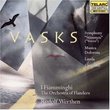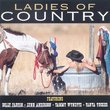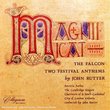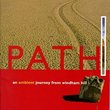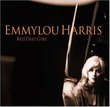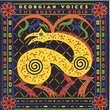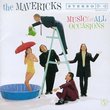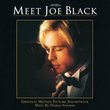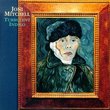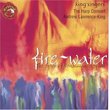| All Artists: Benjamin Britten, Claude Debussy, Maurice Ravel, Francis Poulenc, Henk Badings, Dominick Argento, Nanette Soles, Pam Elrod, Robert Shaw Festival Singers, Christine Goerke, Julie McCoy, Matthew Pittman, Charles Bruffy Title: Appear & Inspire Members Wishing: 0 Total Copies: 1 Label: Telarc Release Date: 2/27/1996 Genres: Special Interest, Classical Styles: Opera & Classical Vocal, Historical Periods, Modern, 20th, & 21st Century Number of Discs: 1 SwapaCD Credits: 1 UPC: 089408040825 |
Search - Benjamin Britten, Claude Debussy, Maurice Ravel :: Appear & Inspire
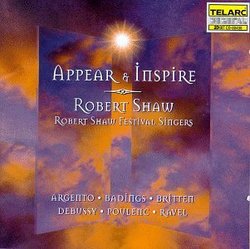 | Benjamin Britten, Claude Debussy, Maurice Ravel Appear & Inspire Genres: Special Interest, Classical
![header=[] body=[This CD is available to be requested as disc only.]](/images/attributes/disc.png?v=a4e11020) ![header=[] body=[This CD is available to be requested with the disc and back insert.]](/images/attributes/disc_back.png?v=a4e11020) ![header=[] body=[This CD is available to be requested with the disc and front insert.]](/images/attributes/disc_front.png?v=a4e11020) ![header=[] body=[This CD is available to be requested with the disc, front and back inserts.]](/images/attributes/disc_front_back.png?v=a4e11020) |
Larger Image |
CD DetailsSimilar CDs
Similarly Requested CDs
|
CD ReviewsExcellent sampling of 20th century choral music 07/15/1999 (5 out of 5 stars) "For choral fans, any disc conducted by Robert Shaw is self-recommending, since he always cultivated a carefully controlled yet expressive sound. This program has one of my favorite versions of Britten's "St. Cecelia," a piece every Britten fan should get to know and one with a very intriguing text by Auden. (The words veer far afield from religious ideas and, some say, point to the Gay pride movement long before its time.) Also welcome are the well-liked pieces by Ravel and Debussy, plus an infrequently recorded one by Poulenc. To my taste, the selections by Badings and Argento are less memorable but worth a listen. The sound engineering captures a lot of gentle nuances in the voices amid ample but not excessive reverberation. This is definitely a disc that rewards one's musical curiosity." A obligatory listen for all choir nerds Gabrielle Dietrich | Stockton, CA USA | 08/20/2001 (4 out of 5 stars) "In the course of my rather extensive study of the "Hymn to St. Cecilia" this summer, I searched for various recordings of the piece and came across this album along the way, a great relief after hearing several recordings in which the ensemble was not able to follow the demanding tempi Britten intended. The late Shaw and his impeccably trained singers have, yet again, come quite close to perfection. It is very decidedly Shaw, the ultimate choir giant, as evidenced in the very musical interpretation and the big, legato sound of the ensemble. Diction and dynamics seem a little neglected at times (which could be a problem with the recording or the hall, not the singing), and there are a few intonation troubles, but far be it from this little fish in the choral pond to give any real criticisms. If you have not heard the "Hymn to St. Cecilia", this is a good first listen to it, with a pretty accurate realization of Britten's tempi and the heart-wrenching quality of the soprano solo in the 3rd movement, "O dear white children". The other pieces on the CD are not as well-known to me, but are clearly excellent, well-performed examples of demanding works. If you can't get a hold of the David Willcocks LP of "Cecilia" with King's College Choir, "Appear and Inspire" is certainly my close second favorite." A voice teacher and early music fan George Peabody | Planet Earth | 02/02/2007 (5 out of 5 stars) "DOMINIC ARGENTO'S SONG 'I HATE AND LOVE'IS ONE OF THE MANY UNUSUAL SONGS IN THIS INTERESTING COLLECTION!
Robert Shaw (1916-1999). In his career whichspanned 6 decades and 4 cities, Robert Shaw transformed choral conducting into an art and nearly single-handedly raised its standards to a new level. For more than half a century he set the standard of excellence for choral music, enjoying a status of patriarch of vocal musical interpretation in the USA. The violinest Isaac Stern said of him: "Robert Shaw is without a doubt the leading choral conductor in the US...He is a practising and acknowledged master of an art that he teaches with passion and commitment." This masterfully performed recording displays all of the above abilities of Robert Shaw and his meticulously trained singers, as well as his vast knowledge of the compositions he has chosen. And what a variety of works we have for our listening pleasure! Britten's 'Hymn to St. Cecelia' was written during his return trip on a slow Swedish freighter along with the tenor Peter Pears, their voyage having been disrupted by wartime difficulties. The work was premiered on St. Cecelia's Day (Nov. 22), which was also Britten's birthday, by the BBC Singers. It is a very descriptive piece that made the most of W.H.Auden's poetic imagery. The "Trois chansons' are Debussy's only published work for a cappella chorus. All three are excellent examples of the taste and simplicity Debussy brought to the setting of texts from ancient sources. Ravel wrote his 'Trois Chansons' in 1915, while in the service; he wrote the words himself. They show the same assurance of color and nuance as his works for piano and orchestra. Poulenc who wrote 'Un soir de neige' was also one of the great 20th century masters of French song. His music, in general, has a supple lyricism and austere and sometimes grotesque beauty. Bading's 'Trois chansons bretonnes' (Three songs for Brittany) were composed in 1946 to poetry by Theodore Botrel. One characteristic of his choral music is his frequent dividing of the vocal sections to create thick textures for his impressionistic sound pictures. Dominic Argento is a name from my past ,as he was a student at the Peabody Conservatory of Music in Baltimore at the same time I attended, so I actually became familiar with his style of composing. I found his music quite interesting and attractive and 'I Hate and Love' prompts me to use the same adjectives. There are some works on here that I really enjoyed, and some not, but only because I personally do not like the music of some composers; but it's all performed at a high level, and with Shaw's usual perfection." |

 Track Listings (24) - Disc #1
Track Listings (24) - Disc #1